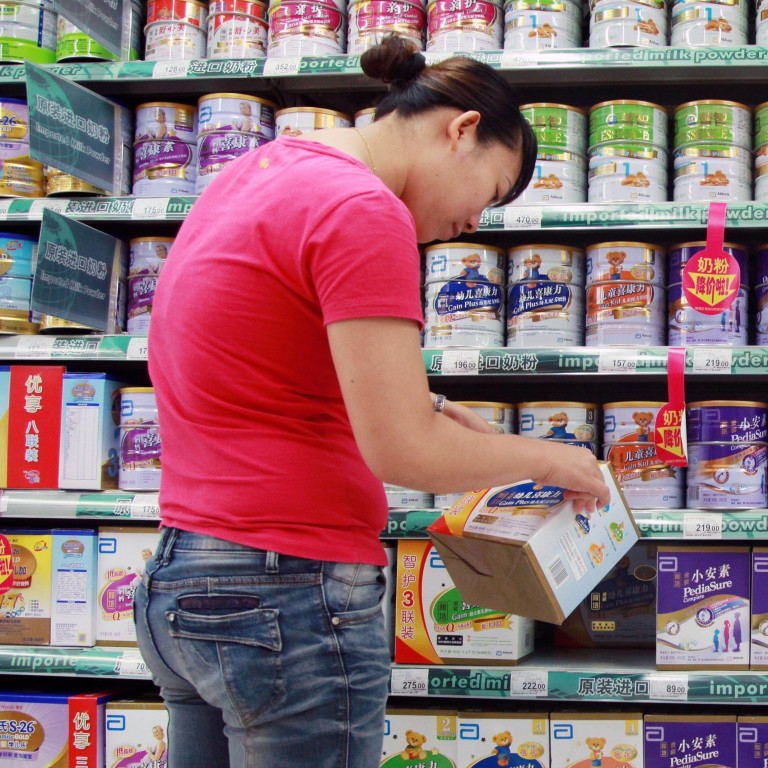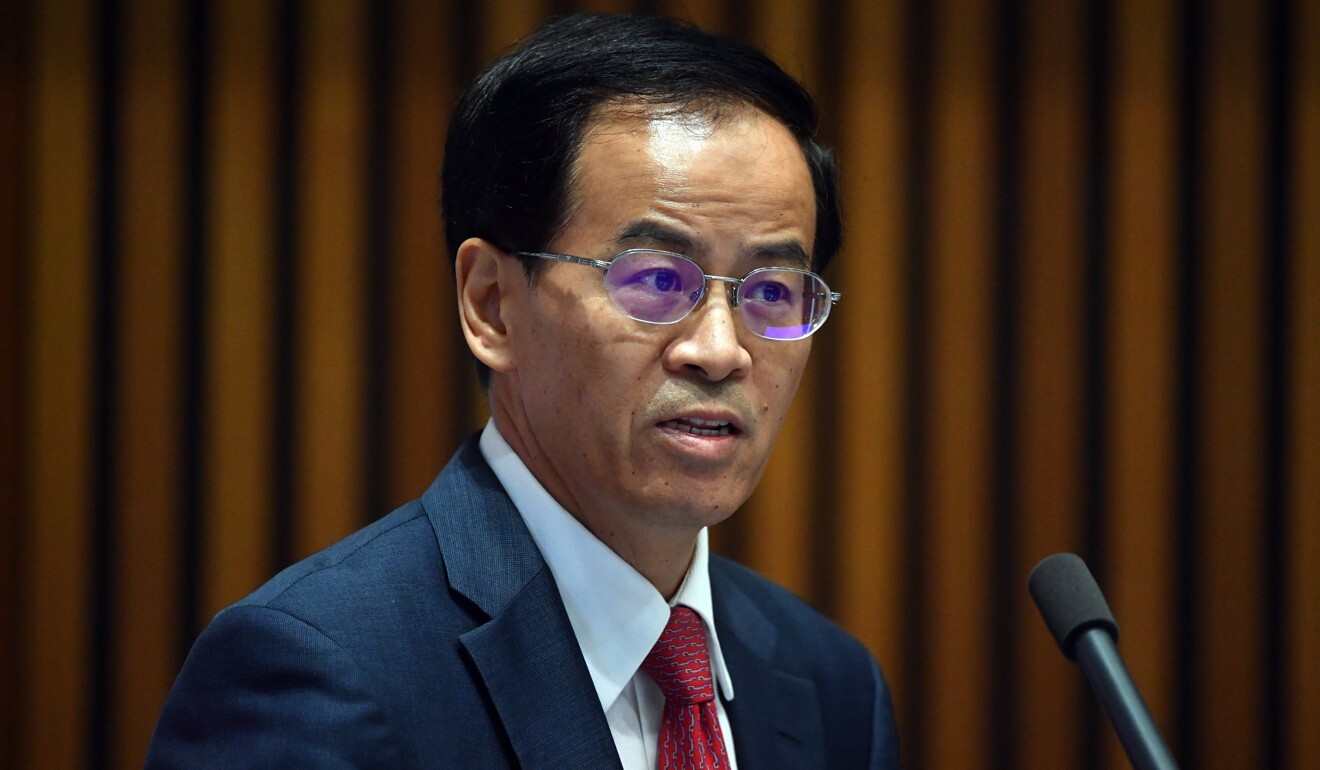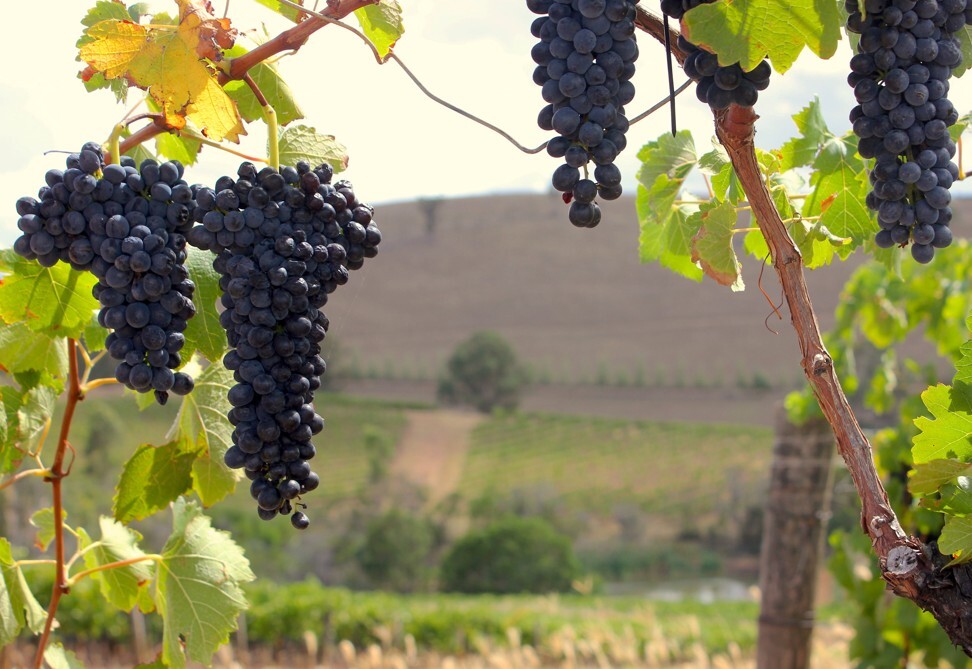
Row over coronavirus probe sparks fears of China-Australia economic decoupling
- Tit-for-tat row over Canberra’s push for a Covid-19 inquiry leaves Australian traders fearing a boycott by Chinese consumers
- While some observers say the spat is likely to blow over, others warn it could lead to a permanent trade stand-off
MacKenzie, who co-manages his family’s fifth-generation company Macka's Beef producing Angus cattle in New South Wales, has A$750,000 (US$488,000) worth of beef exports sitting in Beijing awaiting deployment, and the last thing he needs is a trade disruption between the countries.
“I don’t think it would play out badly – we need each other,” MacKenzie said. “We have cultural differences, but like a marriage, we have ups and downs … our governments are smart enough to not let this get in the way of our trade.”
Australia warns China against ‘economic coercion’ over coronavirus probe
The incident drove one of Ye’s Chinese selling agents, who markets his Australian private milk label Single Estate Diary in Guangxi, to launch into an expletive-laden outburst on WeChat, saying: “Australian dogs want us to import their fresh milk but they talk bad about us.”
“Australian farmers work hard to build a love story around Australian dairy and food, but politicians are ruining it,” he said. “While what Christensen said was his opinion ... it makes Australia look like a hypocrite who says: ‘I want your money, China, but I hate you’.”

The public back and forth came after Chinese ambassador Cheng Jingye on Sunday told the Australian Financial Review newspaper that the Chinese public could boycott Australian wine and beef if Canberra pushed ahead with a probe – remarks interpreted by senior Australian government figures as a threat of economic retaliation.
On Tuesday, the Chinese embassy in Canberra disclosed purported details of a phone call between Cheng and Department of Foreign Affairs and Trade (DFAT) Secretary Frances Adamson, during which the Australian diplomat was said to have “tried her best to defend” the proposed inquiry but “admitted it is not the time to commence the review” and Australia had “no details” of how it would work.
Australia calls China’s envoy over ‘disappointing’ remarks
DFAT issued a statement later that day expressing “regret” over the purported disclosure of the conversation, saying it would not respond by “itself breaching the long-standing diplomatic courtesies and professional practices to which it will continue to adhere”.
On Wednesday, the Chinese embassy fired back, accusing the Australian side of breaching diplomatic protocol first as news of the phone call had appeared in Australian media. Although Trade Minister Simon Birmingham earlier confirmed that a phone call had taken place, he did not go into details about the nature of the conversation.
“The embassy of China doesn’t play petty tricks, this is not our tradition,” it said in a statement on Wednesday. “But if others do, we have to reciprocate.”
Neither would win from tensions spilling over and infecting the entire relationship.
A former DFAT official, who spoke on condition of anonymity, said the embassy’s actions would have been received poorly within the department, although they were somewhat in line with current expectations of Chinese diplomacy.
“My sense is that this will blow over in the not-too-distant future, but I do get the feeling that the embassy probably overplayed their hand a little bit here, and they haven’t really read the room,” the former official said. “I think it will be seen a little bit as the ambassador throwing the secretary under the bus when she was probably – at least from what I can gather and the language – was trying to engage constructively.”
James Laurenceson, director of the Australia-China Relations Institute in Sydney, said the spat was “quite unprecedented” but he remained confident the sides would ultimately keep a constructive relationship intact.
The row has now raised the spectre of an economic decoupling between the two nations.
“We are disappointed with the political point-scoring. That is not the way to do business with our trade partners,” said Tony Battaglene, chief executive of Australian Grape and Wine, a national wine industry group which handles wine exporters.
“At the moment, there’s no consumer backlash, and we’re reasonably confident it won’t happen. But inevitably, consumers don’t have to be told by governments, they can make up their own mind,” he said. “Our message to the Australian government is that if you want a debate, do it through diplomatic channels [not] through the newspapers.”
Australia’s coronavirus-hit economy: is it going down, under?
It is not the first time an economic decoupling between two countries has come close to a reality, but this time a permanent trade stand-off looks likely, Harrop said.
Previous trade tensions have included China’s “go-slow” in the handling of Australian metallurgical coal through the Dalian port in March 2019 and China launching an anti-dumping investigation into Australian barley exports that May.
“Both might be viewed as examples of ‘grey-zone’ sanctioning,” said Jeffrey Wilson, director at the Perth US-Asia Research Centre. “While both were denied as a political move at the time, the lack of credible alternate explanations has led many to view them as a deliberate warning signal.”



